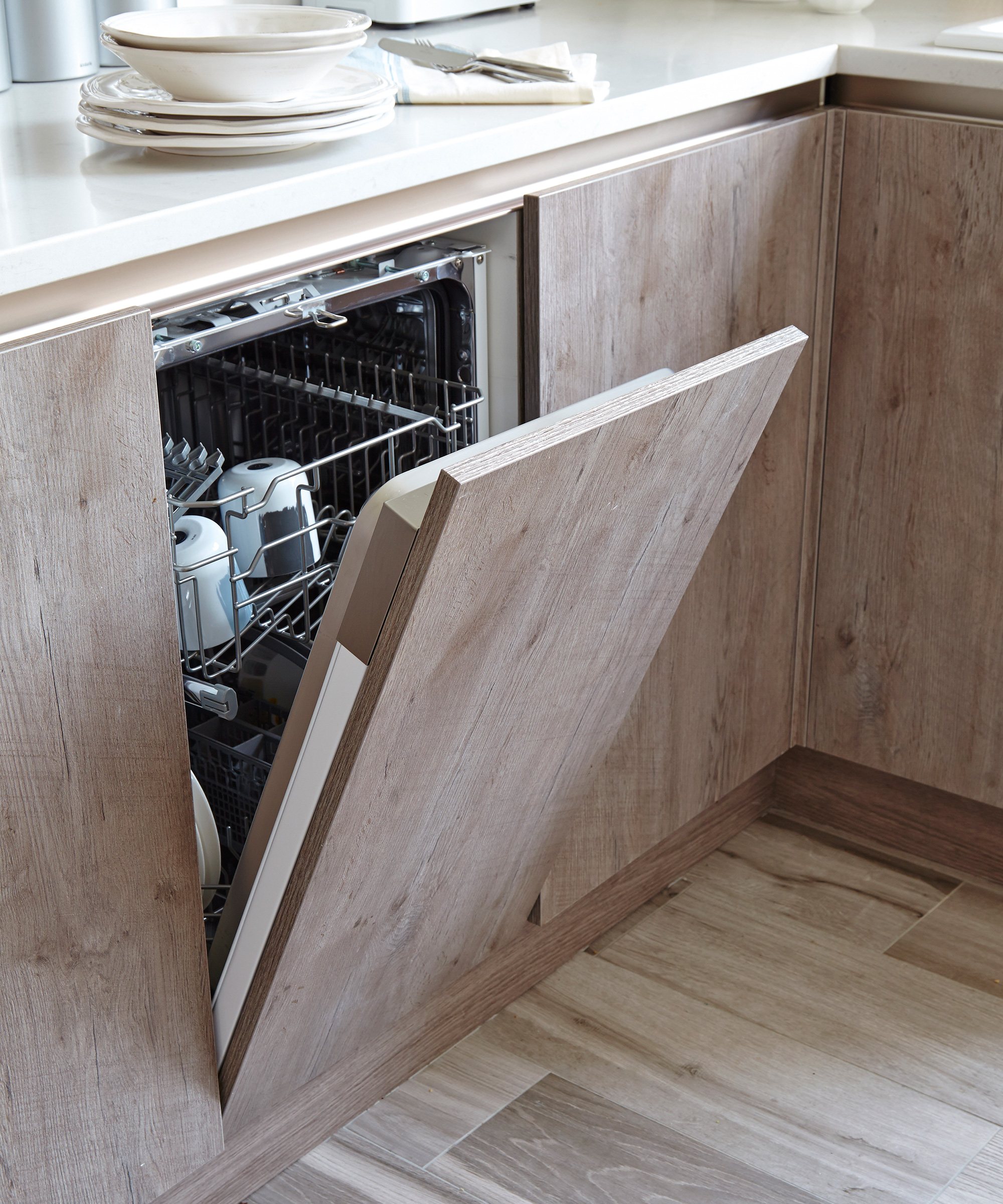
A pleasant-smelling kitchen is not just about good food; it's also about creating an inviting atmosphere. A kitchen that smells delightful can instantly make your home feel happy and inviting.
Whether you're a culinary genius or simply love a cozy space, maintaining a fresh kitchen aroma is essential. Unfortunately, there are many kitchen cleaning hacks that just don't work so it’s even more important to know what to do and how to clean a kitchen effectively.
For a nice-smelling space it is just as crucial to understand the bad habits that contribute to the odors and nasty smells, so pay close attention to the finer details.
7 Things people with nice-smelling kitchens never do
We’ve collected unique insights from cleaning experts, and home improvement specialists to help you maintain a kitchen that always smells wonderful.
1. Neglect the sink

Neglecting the sink is one of the most common mistakes that people make, and it can have a big impact on the smell of your kitchen. ‘Dirty dishes left in the sink overnight can attract pests and bacteria, leading to unpleasant odors in your kitchen, says cleaning specialist Shayne Jeramos. ‘Make sure to wash your dishes after each meal or at least soak them before leaving them overnight.
Aside from cleaning the contents of your sink, spend time learning how to clean the sink itself. To prevent foul odors, regularly clean your kitchen sink drain using a mixture of baking soda and hot water. Follow up with a mixture of vinegar and hot water to keep the drain smelling fresh.
2. Ignore the garbage
Garbage disposal is a lifesaver in the kitchen. However, if not properly maintained, it can become a major source of bad smells. To keep your kitchen smelling fresh, make sure to regularly clean and deodorize your garbage disposal by grinding ice cubes and citrus peels.
On top of that, ignoring your trash can is a big no-no if you want a nice-smelling kitchen. Make sure to regularly empty and clean your trash can, and use scented liners or sprinkle baking soda at the bottom to absorb any odors.
The trash can, compost bin, and even the recycling bin should all have sturdy lids, like this dual-compartment recycling kitchen step trash can with soft-close lid from Amazon, and will limit air flows. This will not only help your kitchen to smell better, but also keep kids and pets from digging through the trash. These simple steps can make a big difference in keeping your kitchen smelling fresh and inviting.
3. Use incorrect food storage

Cleaning expert Angela Rubin from Hellamaid suggests proper food storage is essential for achieving a kitchen that perpetually fills the house with nice-smelling fragrances. ‘People who are able to do this put an emphasis on using airtight containers, zip-top bags, and refrigerating their produce and cooked food. By carefully sealing perishable goods, they stop odors from escaping and bacteria from spreading.’
Ensure that dry goods like grains, flour, and cereals are stored in airtight containers, like these glass storage jars from Amazon, to prevent pests and maintain freshness. Rotate items regularly to use older products first and reduce the chance of items going stale.
This methodical approach to food preservation not only extends the life of ingredients but also prevents the introduction of unpleasant odors, making the kitchen an environment where freshness is constantly prioritized.
4. Use strong-smelling cleaning products
While it may seem like using strong-smelling cleaners would help eliminate kitchen odors, it can actually make them worse. Strong scents from cleaning products when cleaning areas such as kitchen tiles and kitchen cabinets can mix with food smells and create an overpowering and unpleasant scent.
Cleaning expert Prerna Jain suggests that instead, you should opt for natural cleaners or mild-scented ones to keep your kitchen smelling fresh and clean. We like the Method All-Purpose Cleaner Spray on Amazon. Method cleaning products are plant-based, biodegradable and perfect for most kitchen surfaces.
To complement natural cleaning products you can also create your own natural fragrances. Create a simmer pot with water with citrus slices, herbs like rosemary or thyme, and a few cloves for a natural and pleasant aroma.
5. Cook without proper ventilation
‘The unsung hero of odor management in the kitchen is good ventilation,’ says Karina Toner, cleaning expert at Spekless Cleaning. ‘Those who value a pleasant cooking environment will make use of exhaust fans and open windows a priority in their kitchens.’
Cooking produces a lot of steam, smoke, and food smells that can linger in your kitchen if not properly ventilated. Make sure to turn on your range hood or open a window while cooking to let the smells escape and keep your kitchen smelling fresh. If you do not currently have a range hood or are looking to upgrade your current model, we like the Tieasy Wall Mount Range Hood from Amazon, which is a classical pyramidal hood that fits most kitchen decors.
This method ensures that cooking scents don't linger and degrade indoor air quality by facilitating their rapid dispersion. By keeping the ventilation in the kitchen in good working order, they are able to ensure that the aroma of their cooking is dissipated without lingering.
6. Use old sponges and cloths

Cloths should be washed on a regular basis to avoid the possibility of odors in the kitchen. Sponges may seem like a harmless tool in the kitchen, but according to cleaning specialist Janille Mangat, they can harbor bacteria and odors if not replaced regularly.
You can also sanitize sponges and towels in the microwave or dishwasher, but read the manufacturer's instructions first. It's important to change your sponge every 2-3 weeks to avoid any potential bad smells and keep your kitchen clean.
7. Overload the dishwasher

Overcrowding the dishwasher can lead to poor cleaning and trapped food particles, resulting in odors. Clean the dishwasher filter to prevent food and bad odors from building up. Properly load the dishwasher to ensure dishes are thoroughly cleaned and odors are minimized. Try putting on an empty cycle with vinegar to help eliminate any lingering odors.
People with fragrant kitchens never neglect regular cleaning and maintenance of appliances like dishwashers, ovens and microwaves, ensuring that lingering odors are never a concern. Often overlooked, kitchen appliances can contribute to unpleasant odors if not properly maintained.
FAQs
Is it okay to mask bad smells?
While it may seem like a quick fix, masking bad smells is not a permanent solution. It is important that you tackle odors head-on by using natural deodorizers or circulating clean air through proper ventilation.
Individuals with pleasant-smelling kitchens recognize that consistent cleansing is fundamental to preserving a pleasant atmosphere in the kitchen. Keeping on top of hygiene through performing daily cleaning tasks, cultivates an atmosphere of cleanliness and freshness, which in turn creates an environment conducive to pleasurable dining and culinary experiences.







